Reviews
Scott Silver
USA, 1999
Credits
Review by Victoria Large
Posted on 26 June 2013
Source MGM DVD
Categories Failed Franchises
I didn’t grow up with the TV version of The Mod Squad, but director Scott Silver’s 1999 film based on the series really wasn’t intended to appeal to the show’s original audience. The film — as well as its soundtrack and its cross-promotional deal with Levi’s jeans — were pitched to the well-under-thirty market, none of whom would have been old enough to comprehend the TV series during its initial run. Not unlike McG’s Charlie’s Angels movies, which were also based on an Aaron Spelling-produced TV show and were released not long after this film, The Mod Squad intended to use an old name to launch a new franchise. After all, the business of youth-oriented movies was booming in 1999, a year that saw the release of some of the most popular teen films of that decade, including Cruel Intentions, 10 Things I Hate About You, She’s All That, and American Pie. Nevertheless, marketers couldn’t persuade young audiences to ignore poor reviews and pony up their hard-earned cash to see The Mod Squad. Most teens held onto their allowances until it was time to see The Matrix, which was released five days later and went on to be the fifth highest-grossing film of the year. The Mod Squad didn’t even crack the top 100.
The film stumbled for some predictable reasons: like many failed franchises, it severely underestimates its audience’s interest in good storytelling and strong characterization. But it also neglects to include the kinds of bells and whistles that films like this one are usually keen to toss in the mix: fun villains, elaborate action sequences, and goofy one-liners. The Mod Squad is actually kind of glum. As a result, it’s also pretty dull, which is among the greatest sins a film can commit. While many action franchises (including the financially successful ones) are loud and hyperactive to a fault, The Mod Squad disappoints by being more flaccid than anything else.
The plot, derived from the premise of the television show, finds young delinquents Julie, Linc, and Pete assisting the police with undercover operations in order to avoid jail time. While a group like that could get involved with any number of possible cases, the film opts for cookie cutter corrupt cops as villains. The bad guys on the force are moonlighting in drug trafficking and murder, which sadly isn’t as interesting as it sounds. They also sometimes spout racist or sexist things just to remind us that they’re terrible people. Perhaps most frustratingly, the villains are awful at covering their tracks. As Roger Ebert sharply notes in his review from the time of the film’s release: “The main investigative technique in this movie consists of sneaking up on people and eavesdropping while they explain the entire plot and give away all the secrets.”
The cast does their best with the material, and they seem much more carefully assembled than the film’s storyline. Claire Danes is our Julie, a recovering alcoholic whose arc could have been the heart of the film if her characterization were more substantial. By the late nineties, Danes had already played iconic teen angst roles in TV’s My So-Called Life and Baz Luhrmann’s MTV-influenced adaptation Romeo + Juliet, but she has little to work with here. Omar Epps, who plays Linc, had also established himself by 1999, having starred in John Singleton’s Higher Learning before getting memorably dispatched in Scream 2, but his character’s origins are vague, and he’s given little to do besides looking exasperated while Giovanni Ribisi nibbles the scenery as the aggressively quirky Peter Cochran. Ribisi is a fine actor who gives the film a bit of nervy energy as a disaffected rich boy given to gratuitously dancing on cars or barking like a dog, but even these brushstrokes feel too randomly applied.
The film has flashes of visual style, but seems unsure of how to best appeal to the kids, sometimes reaching for the overcast emotions associated with nineties alternative rock (we get a lot of scenes of characters brooding) and sometimes making half-hearted attempts at Scream-style self-awareness by having a character quote Lethal Weapon. There’s a title card defining “mod” that seems like a glancing reference to the card defining “pulp” at the beginning of Pulp Fiction, but The Mod Squad also sees fit to inform us that a “squad” is “a small group of people working together,” which is kind of silly and maybe a bit condescending.
Silver works in washed-out colors — the entire film actually looks Instagrammed — and occasionally mixes things up with an unusual close-up or VCR-inspired touches like rewinding or slowing down a particular dramatic moment. And actually, there are moments that look cool out of context, like Danes smashing a lipstick-smeared mirror or striding away from an exploding car without looking back. It’s just that those nifty-looking touches don’t feel as cathartic as they look. The best bits of The Mod Squad could sustain a reasonably amusing music video, but as it stands, the film feels much longer than its ninety-two minutes. Its final scene implies the possibility of a sequel, but by then we’re more than ready to move on.
More Failed Franchises
-
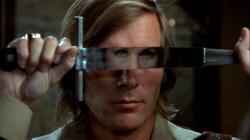
Captain Kronos - Vampire Hunter
1974 -
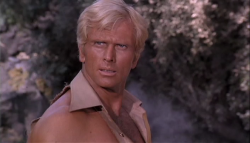
Doc Savage: Man of Bronze
1975 -
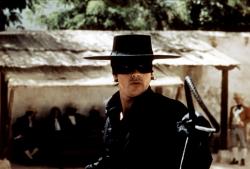
Zorro
1975 -
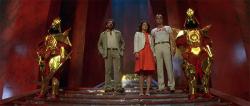
Flash Gordon
1980 -
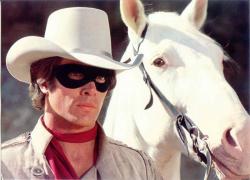
The Legend of the Lone Ranger
1981 -
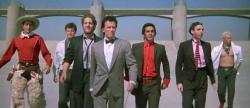
The Adventures of Buckaroo Banzai Across the 8th Dimension!
1984 -
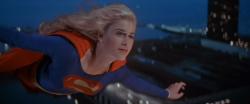
Supergirl
1984 -

Dune
1984 -

Masters of the Universe
1987 -

Howard the Duck
1986 -

Willow
1988 -
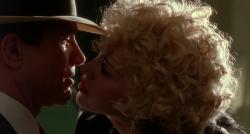
Dick Tracy
1990 -

The Rocketeer
1991 -
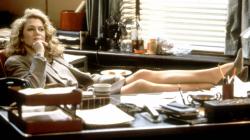
V.I. Warshawski
1991 -
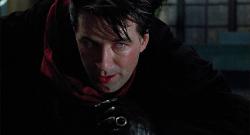
The Shadow
1994 -

Godzilla
1998 -
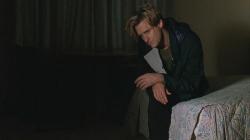
The Zero Effect
1998 -

The Mod Squad
1999 -

Hulk
2003 -

Master and Commander: The Far Side of the World
2003 -

John Carter
2012
We don’t do comments anymore, but you may contact us here or find us on Twitter or Facebook.



